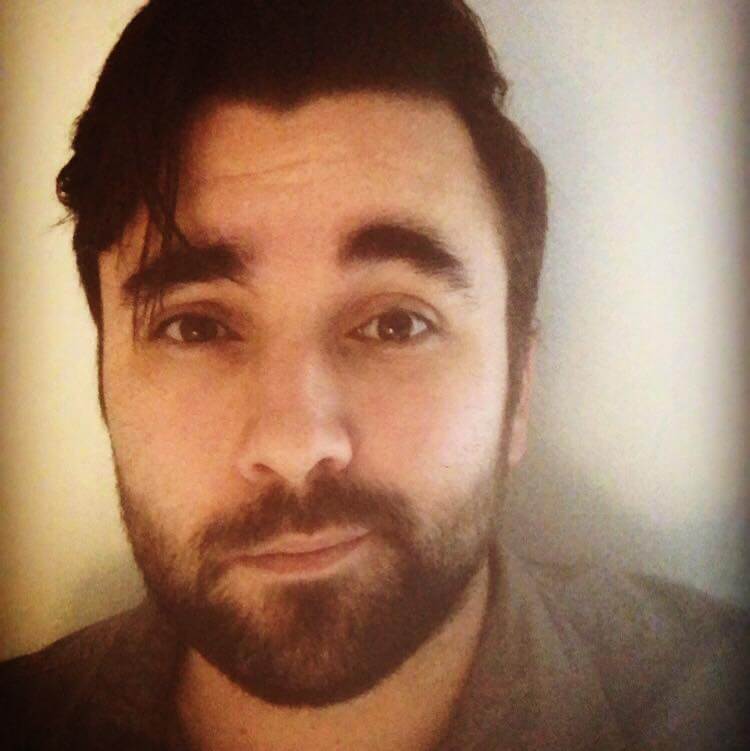To an extent, living with a chronic illness and doing a PhD share quite a few similarities. Both require a lot of self-discipline. Both can be hard work some days. But ultimately, they both teach you a lot about yourself. They teach you your strengths, your weaknesses, your limits, and that you’ve always got that little more in your tank to keep going. I’m not here to say I am an all-knowing sage. I want to acknowledge that everyone has their own PhD journey, and people with chronic illnesses have their own unique journeys too. I’m just a PhD student, sharing his journey about dealing with both at the same time. I hope that my story reaches or connects with even one person. To that person, I want you to know that whilst it’s hard, you’ve not only got this, but you’re going to be super proud of yourself when you come out the other side.
I should really introduce myself. My name is Max Portman. I am a final year PhD student at the University of Chichester in the UK. I am studying history, and my thesis is based on the relationship between football clubs (or soccer if you’re that way inclined) and the communities they engage with in East London from the 1980s until today. I’m due to graduate next year and I have thoroughly enjoyed my PhD experience overall. But the road to get to where I am now has not been easy.
To give you some context as to why my journey hasn’t been smooth, I have suffered from Crohn’s disease since I was 12 years old. Crohn’s disease is a chronic illness where parts of the gut become inflamed and commonly results in stomach cramps, weight loss, high levels of fatigue, and diarrhoea. Over the past 16 years, I have had ups and downs with it. But thankfully, through regular medication and infusions to support my immune system, which helps tackle the inflammation in my gut, I am now able to live a relatively normal life. But when I start my PhD journey back in September 2018, this wasn’t the case.
Not long before I started my PhD journey, my Crohn’s flared up again. It started with the diarrhoea and stomach cramps, which can be aggravated by stress. This was obviously not a great recipe for a prospective PhD student in an interview trying to get a university to support his research. Thankfully, the university liked my research enough that they accepted me on a pre-PhD program, prior to undertaking a full PhD, which allowed me to shape my subject area for my thesis with my current supervisor. Due to the reappearance of my Crohn’s, I was not able to travel far due to fear of needing the toilet more than usual, which left me heavily fatigued. I told my current supervisor about my situation very early on in my Pre-PhD stage and he has been nothing but hugely supportive and understanding, offering to help me in any way he could. And with a supervisor like that, I felt like a weight was taken off my shoulders. It is so nice not having to worry about a supervisor who was indifferent or didn’t care for me or my situation, which I know does happen in academia. So thankfully, I got one of the good ones.
But as my physical and mental health took a huge knock due to my illness, it appeared my PhD was my saving grace. It gave me a focus to keep my mind off what had been happening and a purpose at a time when my illness was heavily restricting my life. I was accepted onto the full PhD program in February 2019. Yet, my illness dominated my life for the majority of my first year as a student, restricting any visits I could do to the archives, conferences, or lectures that would have benefitted my thesis. But at least I could read online articles, books and start writing my thesis from home on the days when my fatigue was not too bad, or I wasn’t in hospital for treatment. But after 18 months of trouble, I finally had a positive development with my Crohn’s at the beginning of 2020. I was put on new medication which helped stop my flare up. Finally, I could go out and do my research and network like a PhD student should be doing. COVID-19 quickly put a stop to that.
For many people in academia (and outside of academia), the first Covid lockdown was a very difficult time. An inability to readily access material or to network with others hit us hard. But for me, it was almost business as usual, as I had basically been in my own mini lockdown for a year before that. So, I just kept on doing what I had been doing for the entirety of my PhD. And as the lockdown restrictions began to lift at the end of 2020, I saw an opportunity to go and do some research in the wild. However, my Crohn’s disagreed.
As 2020 turned into 2021, I found myself back in usual territory with my Crohn’s. I was having all the symptoms again that derailed the first year of my PhD in that pre-Covid world. But this time, I only endured a 3 month flare and by the summer of 2021, my health was finally better and looking like it would hold out this time. Thankfully, it has.
Over the past year and a half, I have quietly been rebuilding my own personal and professional confidence after two and a half years of having it wrecked by illness. I have completed my first full draft of my thesis, I am finally able to go and visit the archives, and next month, I will be attending my first in-person academic conference. I have come a long way and I have learnt a few lessons about myself and my thesis. I think these lessons could be applicable to those who suffer with chronic illness long-term like myself, those who are just learning about their lives with chronic illness, and everyone else for that matter!
Lesson 1: We're only human after all.
A PhD is a long-term effort and if you don’t feel like you can give any effort today, that’s okay. There will be another day where you can.
Lesson 2: Be kind to yourself.
We all give a lot to our PhDs. Sometimes a little too much. So, make sure not to give too much of yourself and be kind to yourself. You’ll be thankful for it in the long run.
Lesson 3: Your illness does not define you.
It really doesn’t. You may feel this way because your illness can restrict you in academia. It doesn’t define you!! You still have the same opportunities as everyone else. I have done a podcast appearance, have been approached about a potential magazine article (subject to approval), and discussed hosting a potential conference at my university. The sky is the limit!
Lesson 4: You're a superhero!
Everyone has something that they deal with away from the PhD. It could be illness. It could be family. It could be work. But you are a superhero for dealing with it in addition to smashing your PhD out of the park. You’re basically an expert in your field and whether or not you see it through to the end, no-one can ever take that journey away from you. You’re your own personal superhero, so don’t forget it!
I hope you’ve enjoyed my journey and remember, as Isabelle from Animal Crossing says:
“Bad times are just times that are bad”.
You’ll get through it and be all the better for it.




